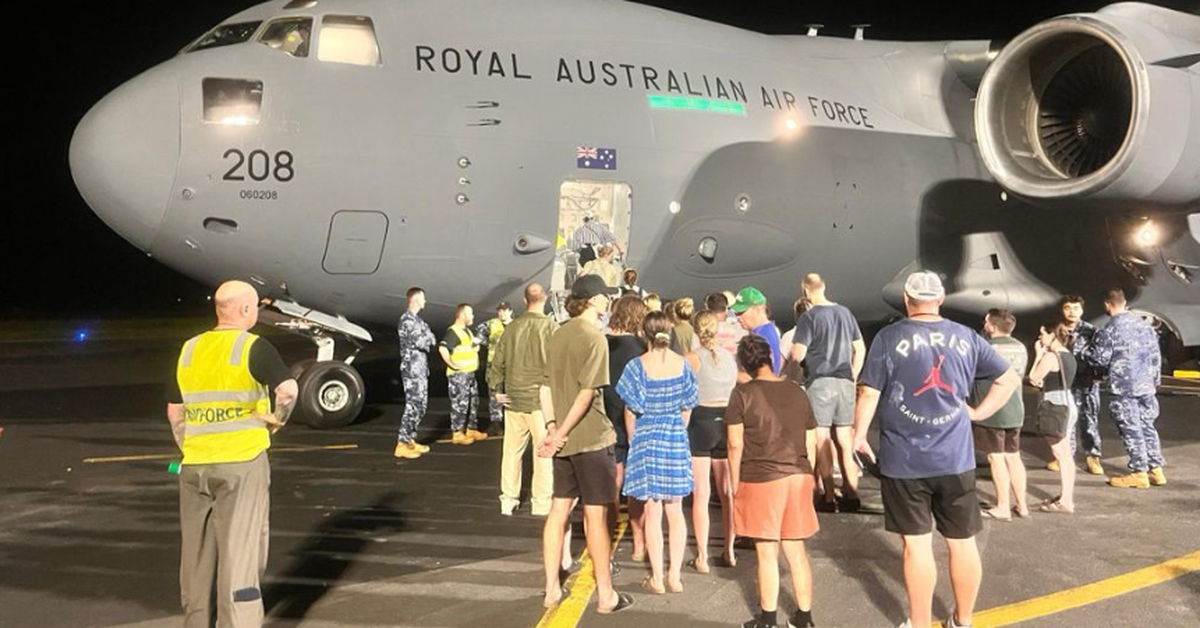As a Sudanese Australian, it is heartbreaking to see the devastating war in my homeland overlooked | Sara Sinada

- by Admin
- November 21, 2024

Last month, the Australian government announced new visa pathways for displaced Palestinians from Gaza and Ukrainians, providing much-needed relief for communities facing immense hardship. While this is a step in the right direction, it starkly highlights a painful feeling: the Sudanese crisis – a full-fledged famine driven by a preventable proxy war – has been overlooked.
On 15 April 2023, war broke out in Sudan, plunging the country into chaos as rival military factions clashed for control. This violent conflict has led to widespread destruction, displacing millions and triggering a humanitarian catastrophe. Stories of sexual assault and other horrific acts continue to underscore the dire circumstances faced by those remaining in Sudan.
Sudan’s plight didn’t unfold silently; it has been a desperate cry for help that the world has largely ignored. It raises an unsettling question: is our government blind to the suffering of Sudanese refugees, or is it actively choosing to abandon them?
For those of us in Australia, this neglect is doubly heartbreaking. We endure the same cost-of-living crisis as every other Australian, but we also carry the heavy burden of supporting family members displaced by war, all while receiving no assistance from our government. We are the invisible Australians, and our community is not small – reportedly there are as many as 40,000 Sudanese Australians and Australians of Sudanese origin. Yet we face the mental and financial toll of helping relatives in Sudan and here in Australia, many of whom still lack permanent rights or protection visas.
The impact of this crisis hits close to home. My cousin chose to stay in Khartoum to care for his elderly parents, fully aware of the dangers surrounding him. Tragically, he was killed amid the chaos – a decision rooted in love and responsibility cost him his life. We couldn’t even entertain the thought of bringing him here; the process is long and fraught with uncertainty, often taking years, leaving families in limbo.
My husband’s brother is stuck as a refugee in Egypt, waiting for a future that remains uncertain. Our mothers, who were visiting Australia before the war broke out, found themselves stranded, leaving behind their belongings and lives.
According to United Nations Office for the Coordination of Humanitarian Affairs (OCHA), Sudan’s displacement crisis is the largest in the world – over 10 million people have fled their homes since the conflict erupted, with 7.9 million displaced within Sudan and more than 2 million crossing into neighbouring countries. Yet the Australian government’s response has been alarmingly muted. While visa pathways are rightly offered to displaced Palestinians and Ukrainians, Sudanese Australians remain excluded. There’s no competition in suffering – no crisis more deserving than another. Human lives are at stake, regardless of their origin.
Being a Sudanese Australian often feels like navigating a world where we are expected to function, work, and raise our children while carrying the weight of survivor’s guilt and the profound loss of our first home, memories, and childhood connections. Our identities are intertwined with Sudan, even as we embrace our lives in Australia. We juggle the demands of daily life – attending work meetings, taking our kids to after-school activities – yet our hearts ache with the knowledge that our families are suffering across the globe.
This grief is not just about individual losses; it encompasses the loss of our cultural heritage, the childhood photo albums left behind, and the relationships that once defined us. While we may share glimpses of our lives through visible family photos on our desks, we carry the invisible burden of countless relatives displaced across Sudan and neighbouring countries, many of whom rely on us for financial support. How can we truly enjoy life when we are tethered to the anguish of those we’ve lost and the uncertainty surrounding our loved ones? Each day feels like a delicate balancing act, where we strive to honour our Sudanese roots while navigating our Australian realities, all while feeling invisible to a government that has overlooked our plight.
The Sudanese crisis may not be dominating the headlines, but for families fighting for survival and Sudanese Australians torn between our past and an uncertain future, our struggle is real. We need our government to acknowledge that our pain, though less publicised, is no less urgent.
Sudanese refugees in Australia deserve the same recognition, stability and security as others. Our stories deserve to be heard, and our community deserves to be seen. It’s time for the Australian government to act – because no refugee should be left behind.
The Latest News
-
December 23, 2024TaylorMade drops Hall-of-Fame Christmas posters starring Tiger Woods, Rory McIlroy and Nelly Korda – Australian Golf Digest
-
December 23, 2024Here’s why Golf Twitter lost its damn mind over Team Langer’s PNC victory – Australian Golf Digest
-
December 23, 2024Social Media Ban in Australia: What Online Casinos Can Learn on Responsible Gambling Practices? – Insights from CasinoAus
-
December 23, 2024From smaller homes to screen time, backyard cricket is facing challenges in modern Australia
-
December 23, 2024This quiet Canadian will make you love YouTube golf again – Australian Golf Digest




